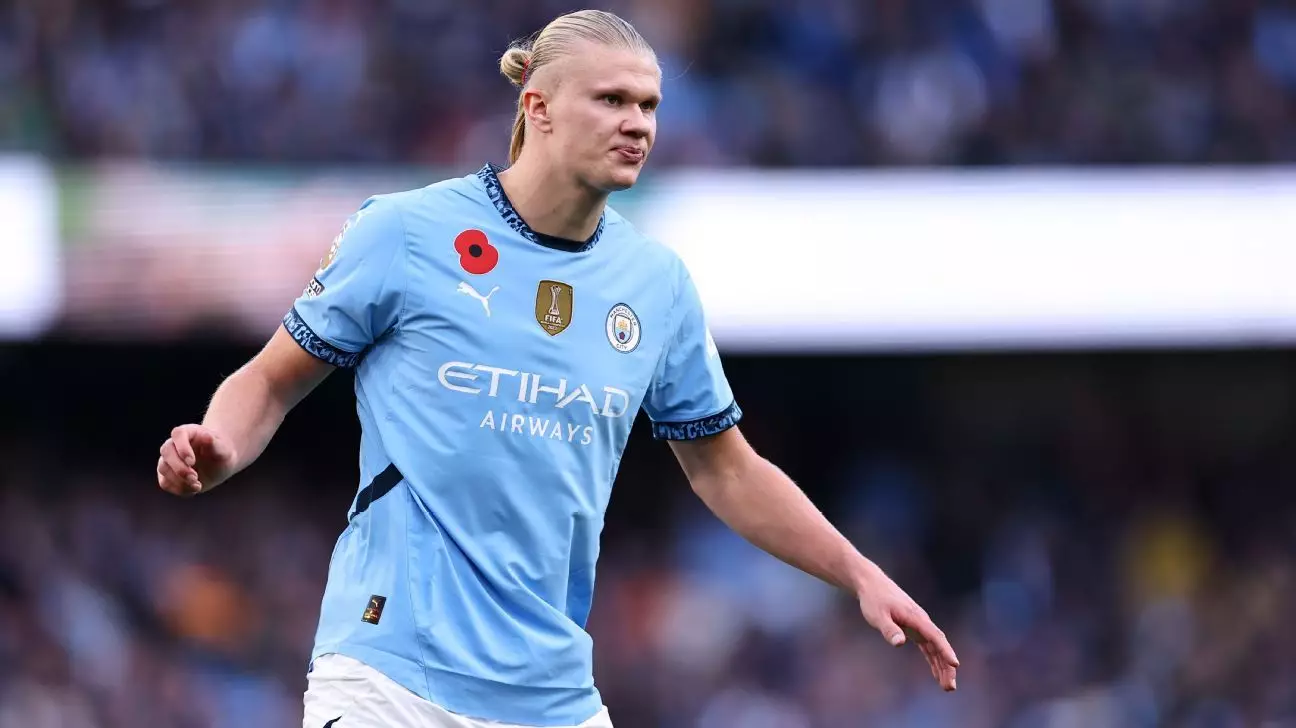In an unexpected turn of events, Erling Haaland, the celebrated Manchester City striker and prolific goalscorer, has opted to miss the prestigious Ballon d’Or ceremony in Paris. Instead of basking in the limelight as a nominee, Haaland is traipsing through Sweden to support his childhood friend, Erik Botheim, who is on the cusp of clinching an Allsvenskan title with Malmö FF. This unconventional choice not only reflects his personal priorities but also challenges the sometimes superficial nature of football’s awards culture.
Haaland’s decision highlights a refreshing aspect of sportsmanship—prioritizing friendship and loyalty over individual accolades. By choosing to be present for Botheim during a critical match against arch-rivals IFK Gothenburg, he showcases a different dimension of camaraderie often overshadowed by the relentless pursuit of trophies. The two strikers cemented their bond while playing together for Norway’s junior national team, and their connection extends beyond the pitch, as evidenced by their collaboration on a viral rap video that has drawn millions of views. This act of solidarity not only demonstrates Haaland’s character but also serves as a reminder that the essence of sport lies in relationships and shared experiences.
Despite his absence from the grand ceremony, Haaland’s contributions on the field are hard to overlook. With an impressive tally of 27 goals in just 31 appearances last season, he played a pivotal role in Manchester City’s title defense. However, he finished as the runner-up at the Ballon d’Or, an acknowledgment that, while significant, may not hold as much value to him as the genuine friendships he nurtures off the field. Haaland’s decision highlights a growing trend among modern athletes, who sometimes view such awards as part of a broader, less personal narrative.
Haaland is not alone in his absence from the Ballon d’Or gala; fellow superstar Vinícius Júnior, alongside his Real Madrid teammates, will also be absent, reportedly due to concerns that Manchester City midfielder Rodri may take home the coveted award. Following a successful season where Vinícius contributed significantly to Real Madrid’s success in La Liga and the Champions League, his omission in the awards conversation has sparked discussions and debates within football circles. One source labeled the situation as “unfair” and “a disgrace,” revealing an underlying tension regarding recognition in football.
In essence, Haaland’s choice to bypass the glitz and glamor of the Ballon d’Or for the sake of friendship suggests a defining shift in the narrative of success within football. Rather than succumbing to the pressures of individual accolades, his actions beckon a more holistic understanding of achievement—one that encompasses loyalty, personal values, and genuine support for peers. As fans and analysts alike continue to dissect the motivations behind such choices, it becomes increasingly clear that the future of football may not be solely about trophies and titles, but rather about the bonds that players foster throughout their careers.

